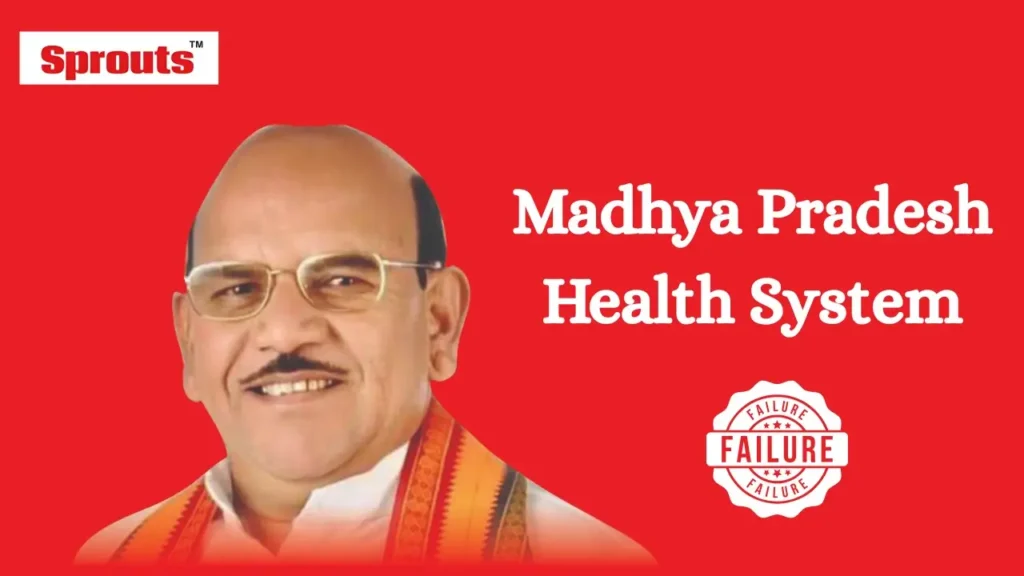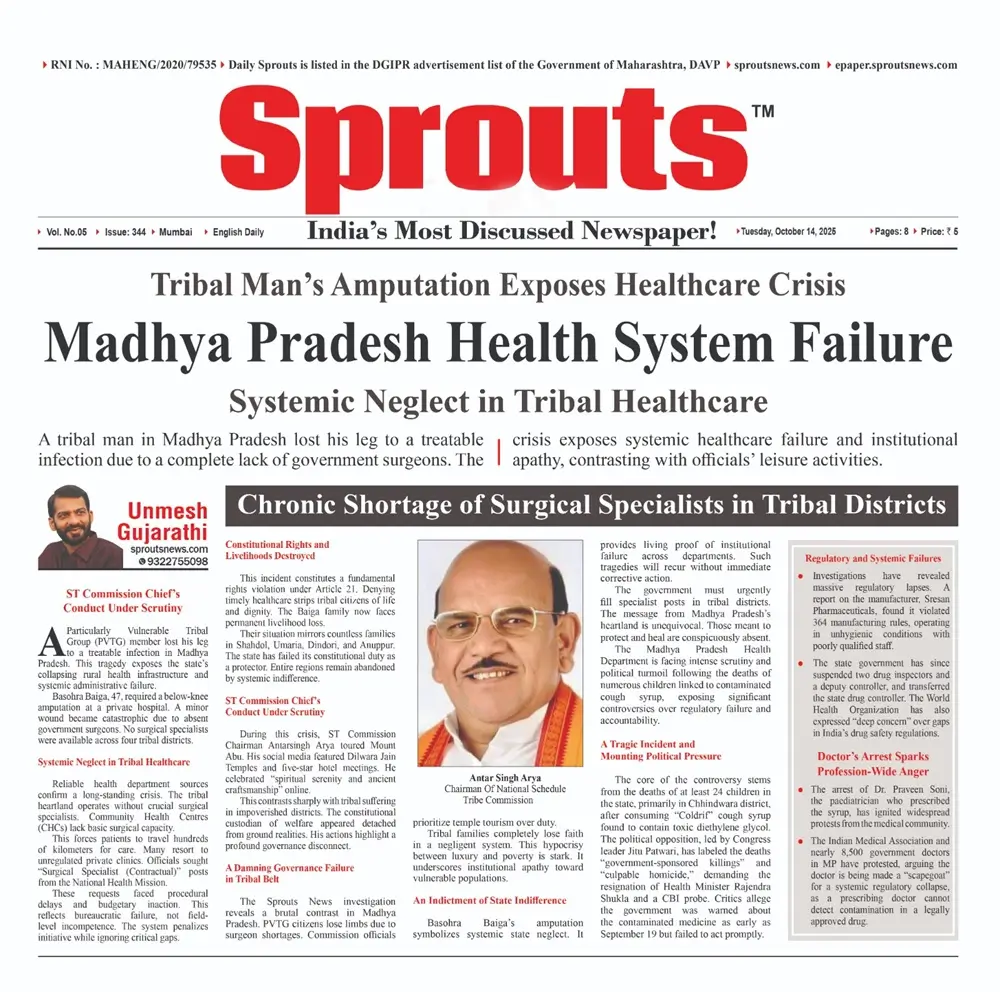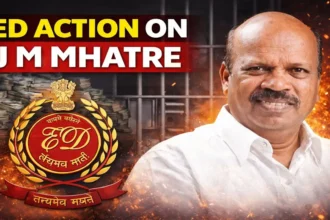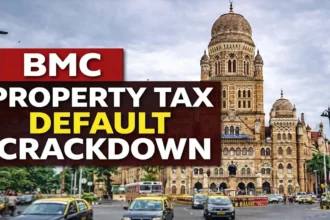Madhya Pradesh Health System Failure: Tribal Man’s Amputation Exposes Healthcare Crisis
• Systemic Neglect in Tribal Healthcare
• Chronic Shortage of Surgical Specialists in Tribal Districts
• ST Commission Chief’s Conduct Under Scrutiny
A 47-year-old Baiga tribal man from Madhya Pradesh lost his leg to a treatable infection after government hospitals failed to provide a surgeon. The tragic amputation exposes the chronic shortage of surgical specialists in tribal districts. Despite repeated warnings, officials ignored systemic healthcare failures while indulging in leisure trips — raising serious questions about accountability and administrative priorities.
- Madhya Pradesh Health System Failure: Tribal Man’s Amputation Exposes Healthcare Crisis
- • Systemic Neglect in Tribal Healthcare
- • Chronic Shortage of Surgical Specialists in Tribal Districts
- • ST Commission Chief’s Conduct Under Scrutiny
- Systemic Neglect in Tribal Healthcare
- Constitutional Rights and Livelihoods Destroyed
- ST Commission Chief’s Conduct Under Scrutiny
- A Damning Governance Failure in Tribal Belt
- An Indictment of State Indifference
- A Tragic Incident and Mounting Political Pressure
- Regulatory and Systemic Failures
- Doctor’s Arrest Sparks Profession-Wide Anger
A Particularly Vulnerable Tribal Group (PVTG) member lost his leg to a treatable infection in Madhya Pradesh. This tragedy exposes the state’s collapsing rural health infrastructure and systemic administrative failure.
Basohra Baiga, 47, required a below-knee amputation at a private hospital. A minor wound became catastrophic due to absent government surgeons. No surgical specialists were available across four tribal districts.
Click Here To Download the News Attachment
Systemic Neglect in Tribal Healthcare
Reliable health department sources confirm a long-standing crisis. The tribal heartland operates without crucial surgical specialists. Community Health Centres (CHCs) lack basic surgical capacity.
This forces patients to travel hundreds of kilometers for care. Many resort to unregulated private clinics. Officials sought “Surgical Specialist (Contractual)” posts from the National Health Mission.
These requests faced procedural delays and budgetary inaction. This reflects bureaucratic failure, not field-level incompetence. The system penalizes initiative while ignoring critical gaps.
Constitutional Rights and Livelihoods Destroyed
This incident constitutes a fundamental rights violation under Article 21. Denying timely healthcare strips tribal citizens of life and dignity. The Baiga family now faces permanent livelihood loss.
Their situation mirrors countless families in Shahdol, Umaria, Dindori, and Anuppur. The state has failed its constitutional duty as a protector. Entire regions remain abandoned by systemic indifference.
ST Commission Chief’s Conduct Under Scrutiny
During this crisis, ST Commission Chairman Antarsingh Arya toured Mount Abu. His social media featured Dilwara Jain Temples and five-star hotel meetings. He celebrated “spiritual serenity and ancient craftsmanship” online.
This contrasts sharply with tribal suffering in impoverished districts. The constitutional custodian of welfare appeared detached from ground realities. His actions highlight a profound governance disconnect.
A Damning Governance Failure in Tribal Belt
The Sprouts News investigation reveals a brutal contrast in Madhya Pradesh. PVTG citizens lose limbs due to surgeon shortages. Commission officials prioritize temple tourism over duty.
Tribal families completely lose faith in a negligent system. This hypocrisy between luxury and poverty is stark. It underscores institutional apathy toward vulnerable populations.
Also Read: Mumbai Pigeon Shelter Ban Ignites Political Firestorm as Jain Monks Protest BMC Decision.
An Indictment of State Indifference
Basohra Baiga’s amputation symbolizes systemic state neglect. It provides living proof of institutional failure across departments. Such tragedies will recur without immediate corrective action.
The government must urgently fill specialist posts in tribal districts. The message from Madhya Pradesh’s heartland is unequivocal. Those meant to protect and heal are conspicuously absent.
The Madhya Pradesh Health Department is facing intense scrutiny and political turmoil following the deaths of numerous children linked to contaminated cough syrup, exposing significant controversies over regulatory failure and accountability.
A Tragic Incident and Mounting Political Pressure
The core of the controversy stems from the deaths of at least 24 children in the state, primarily in Chhindwara district, after consuming “Coldrif” cough syrup found to contain toxic diethylene glycol. The political opposition, led by Congress leader Jitu Patwari, has labeled the deaths “government-sponsored killings” and “culpable homicide,” demanding the resignation of Health Minister Rajendra Shukla and a CBI probe. Critics allege the government was warned about the contaminated medicine as early as September 19 but failed to act promptly.
Regulatory and Systemic Failures
Investigations have revealed massive regulatory lapses. A report on the manufacturer, Sresan Pharmaceuticals, found it violated 364 manufacturing rules, operating in unhygienic conditions with poorly qualified staff. The state government has since suspended two drug inspectors and a deputy controller, and transferred the state drug controller. The World Health Organization has also expressed “deep concern” over gaps in India’s drug safety regulations.
Doctor’s Arrest Sparks Profession-Wide Anger
The arrest of Dr. Praveen Soni, the paediatrician who prescribed the syrup, has ignited widespread protests from the medical community. The Indian Medical Association and nearly 8,500 government doctors in MP have protested, arguing the doctor is being made a “scapegoat” for a systemic regulatory collapse, as a prescribing doctor cannot detect contamination in a legally approved drug.



















